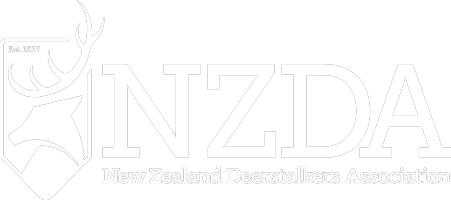Forest & Bird and DOC Letters – Heli-hunting
The Department of Conservation’s management of heli-hunting
Dear Al,
Forest & Bird would like to endorse the position of the New Zealand Conservation Authority on heli-hunting. The Authority is critical of the Department’s current approach in a letter dated 15 November 2010, and we agree with its concerns.
The practice of heli-hunting – where a fee-paying hunter is guided to a trophy animal by helicopter – should be recognised as primarily a commercial activity for private benefit and managed as such. It is not a conservation management activity for the public good.
Forest & Bird is concerned at the Department’s approach, which seeks to justify extensive heli-hunting on the basis that it is a wild game control activity. Like the NZCA, we object to such interpretations of the activity. Another argument, which Mike Cuddihy posed to the DOC-NGO forum, is that heli-hunting is no different to flying a recreational hunter in and out of a location for a period of ground-based hunting. We disagree: hunting by helicopter involves machines in the air for longer periods than access flights and so is more intrusive and less able to be controlled.
Heli-hunting has very low public benefits through killing pest animals, with only individual trophy animals being taken. The activity does not provide “concerted action against the damaging effects of wild animals”, the purpose of the Wild Animal Control Act. Indeed the practice may well serve to promote the opposite by deterring other hunting activity and thereby reducing overall animal control.
From a conservation management point of view, the practice has a significant impact on natural and recreational values. Public conservation lands being targeted for heli-hunting include wilderness areas, national parks and other highly-valued conservation and recreation areas, including areas with fragile biodiversity. Many people – New Zealanders and tourists – access such remote areas for natural quiet, appreciation of biodiversity and recreational activity, including ground hunting. Heli-hunting is, in general, not compatible with these vales and public uses. Air access to remote areas for heli-hunting must be controlled like other commercial activities so noise and disturbance are minimised and the intrinsic values of New Zealand’s wild places are preserved.
We recognise that heli-hunting has commercial benefits to helicopter operators and hunting guides, and the Department is under strong pressure to liberalise heli-hunting access. We also recognise that the current legal situation is complex. However, Forest & Bird stands with the New Zealand Conservation Authority, and concerned recreational hunters and trampers, in maintaining that heli-hunting should be managed as a commercial activity for private benefit (that will be inappropriate in many places); not as a conservation management activity that is given easy access to public conservation lands. Like the Authority, we are very concerned at this misinterpretation of legislative intent by the Department and the precedent that this sets.
We agree with the Authority that a precautionary approach should be taken to the issuing of all heli-hunting concessions in the short-term. That includes determining that heli-hunting is inappropriate in some areas. Forest & Bird is firmly opposed to any heli-hunting in wilderness areas and national parks. The activity is incompatible with the purpose of their land protection status.
Longer term, it is essential to update relevant statutory management plans and strategies to restrict and control heli-hunting for what it is, a commercial activity for private benefit that has significant public impacts on conservation and recreation values. If a law change is required to enable this, then this should be pursused.
Yours sincerely
Mike Britton,
General Manager,
Royal Forest & Bird Protection Society of New Zealand Inc.
